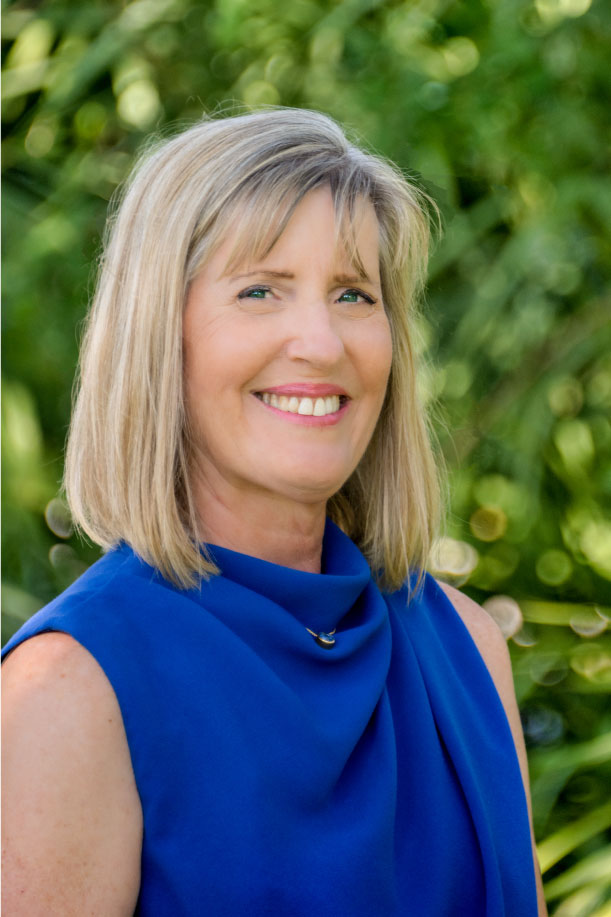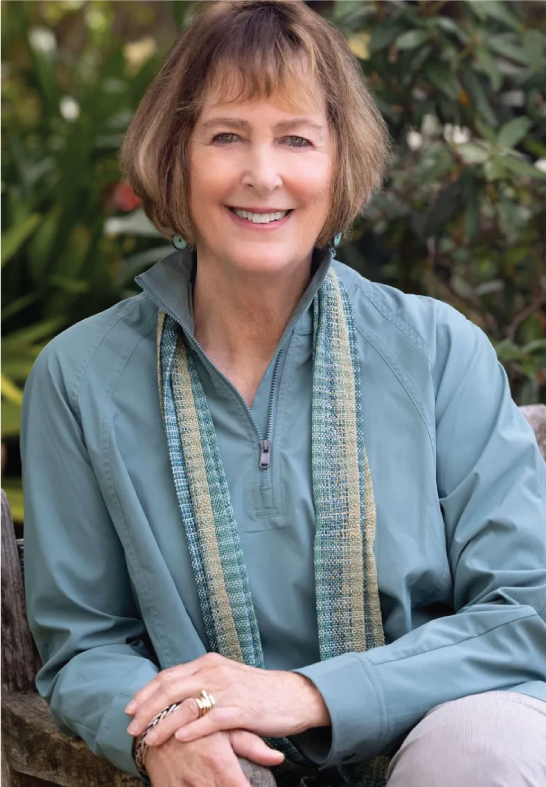An Interview with Author Claudia Marseille

Julie McGue
Author

Claudia Marseille
Author
I first met Claudia Marseille in 2018 through an online class, “Write Your Memoir in 6 Months,” conducted by She Writes Press publisher, Brooke Warner, and Linda Joy Myers, founder of NAMW (National Association of Memoir Writers). Assigned as writing partners in our small cohort, Claudia and I became friends and cheered for one another as we navigated the writing, editing, and publishing process together. Because my youngest sister was born with a profound visual impairment (something I talk about in my forthcoming book due out in Feb. 2025), I became immediately engrossed in Claudia’s story.
This past spring, I was beyond thrilled when Claudia asked me to write a back cover blurb for her recently released memoir, But You Look So Normal: Lost and Found in a Hearing World (She Writes Press, May 2024). It’s an inspiring story of a life affected, but not defined, by an invisible disability: severe to profound hearing loss. In her book, she writes honestly about her experiences with family, loss, shame, identity, love, and healing.
Tell us about yourself.
I have been a professional abstract painter since receiving my MFA over two decades ago and am represented by a gallery in the San Francisco Bay Area. But I came to painting from a circuitous route – first briefly working as an archaeologist, then as a Public Policy analyst. When I got married, my husband encouraged me to pursue the visual arts. I had always loved the field but couldn’t afford art school. I worked as a fine art photographer for 15 years and now as a painter.
What is the story you tell in, But You Look So Normal: Lost and Found in a Hearing World?
By age four, I was still not speaking. Once my hearing loss was finally diagnosed, I was fitted with a large analogue hearing aid clipped to my undershirt. Thus began the ten-year journey of learning to hear, lipread, and speak with the help of speech therapy. My parents mainstreamed me in the Berkeley Public Schools hoping to give me as “normal” a life as possible. While I did well academically, the biggest impact of my hearing loss was episodes of social isolation and loneliness.
In my memoir, I write honestly about my relationships with my German refugee parents— a disturbed psychoanalyst father obsessed over various harebrained projects and moneymaking schemes, and a Jewish mother who had survived the Holocaust in Munich. My parents were under stresses of their own. They went through an acrimonious divorce during my childhood; they didn’t advocate for me as much as they could and should have.
What prompted you to write your story?
I was motivated for two reasons. First, I had been reflecting on the arc of my life, looking at the various influences that shaped who I am today. Certainly, my hearing loss played a big role, as well as my European heritage. But more specifically, I now have many friends who are getting hearing aids for age-related hearing loss. They often say, “Oh, now I know what it was like for you growing up with a hearing loss.” But, as sympathetic as I am to anyone getting hearing aids and adjusting to them, I know they have no idea what it was like to have severe hearing loss. I was impaired since birth at a time when technology was primitive and there was less awareness of and support for people with disabilities. So, I wrote this book to share with others what it was really like growing up with this disability.
Why did you choose the book’s title?
In middle school and high school, I hid my hearing loss from others, in a misguided effort to not appear different. But as I started “coming out” and telling people about my disability, people often said, “but you look so normal!” That response always struck me. When I proposed the title to the publisher, she loved it, and we went with that.
What are the main themes of the book?
Certainly, the main theme of my book is the impact of hearing loss on my life. Unless you have had such a loss yourself, you can’t grasp how pervasive the effect is. I wanted people to learn about this. I also cover the technological advances over the course of my life that made a difference. People take for granted the marvelous digital hearing aids of today, but these did not exist for the first forty years of my life. The inventions of Bluetooth, closed captioning, and assistive listening devices have also drastically improved my life.
Were there any characters, scenes, or chapters that were difficult to write?
Much of my difficult past I had laid to rest. But writing my memoir brought a resurgence of painful memories, like when I was excluded and felt separated from others. Mining my past for the memoir was at times challenging to feel into and thus to write about. I sprinkle throughout the memoir various conversations and interactions I had with my difficult father. Feeling my way back into those early memories of him was also not easy. But I found that once I started writing, I became engaged in the writing process itself.
What do you hope readers take away from your story?
I hope people will find my memoir a compelling and educational read. I also hope, through my story, to inspire others, and to create more understanding and empathy for those who face differences in abilities.
When did you begin writing this book?
I began about five years ago. The writing process itself was about three years, working on it part time. Then, when it was picked up by my publisher, She Writes Press, I went through an editing process, waiting until it fit with the publisher’s schedule for release.
Describe your writing process.
When I first started writing I did not have in mind that it would be a full-blown book! That was a gradual evolution. When memories and ideas materialized, sometimes in dreams, I jotted them down in a journal. In my first efforts, I worked those memories into the form of poems. But as I realized I had so much more I wanted to say, then the memoir format became a better fit. The process of writing, for me, is not unlike that of painting. First, I put down what comes to me, uncensored, and without editing. Then later I go back and refine and rework. I enjoyed that process of revision, playing with words, turning phrases, and making a scene come alive for the reader.
In the end I had so much material that I had to cut several scenes I was attached to. It was a gradual process of honing in on what the story was ultimately about, and including what served the story best.
My story is deeply personal and vulnerable. Until publication, I had no idea how it would be received. I am so pleased that the reception has been favorable. I received an IPPY (Independent Publishers Book Awards) Gold Medal for Best First Book in Non-Fiction/Personal. Putting this memoir out in the world has been an unexpected gift in my life.
What advice do you have for aspiring women looking to write their first book?
Follow your dreams and believe in yourself. If you work at it and persist, you really can make it happen. If you’re writing a memoir, have the courage to be vulnerable and transparent; people respond to authenticity. Find a supportive writing group to share your work and get feedback. I found a community of like-minded writers to be helpful and validating.
Contact links for you?
Author website: www.claudiamarseilleauthor.com
Painting website: www.claudiamarseille.com
Facebook: https://www.facebook.com/claudia.marseille
Books Julie has read/is reading this summer:
- Tom Lake by Ann Patchett
- In Love by Amy Bloom
- Prophet Song by Paul Lynch
- The Women by Kristin Hannah
- How to Know a Person by David Brooks
- An Unfinished Love Story by Doris Kearns Goodwin
- Long Island by Colm Toibin
- The Tea Girl of Hummingbird Lane by Lisa See
- The Trespasser by Tana French
Follow Me Here
In September (1-16th) Julie will join Laura Davis (The Writer’s Journey) and other like-minded pilgrims to hike, write, and paint along the El Camino trail in northern Spain.
In October (18-20th), Julie will attend Florida WritersCon in Orlando, FL with colleagues from the Florida Writers Association (FWA).
In November (14-17th), Julie will attend Story Studio’s four day writing retreat with instructors Rebecca Makkai and Vu Tran at the Guesthouse Hotel in Chicago’s Andersonville neighborhood. The theme for the retreat is “5,000-Word Weekend” and will feature craft talks and one-on-one’s from both instructors.
On February 4, 2025, Julie’s new memoir, Twice the Family: A Memoir of Love, Loss, and Sisterhood hits the bookshelves. It’s the long-awaited prequel to her award-winning debut, Twice a Daughter.
Follow Julie by visiting her website, subscribe to her bimonthly newsletters, and listen to previous podcast recordings where she discusses topics like adoption, identity, and belonging.
“If you’re writing a memoir, have the courage to be vulnerable and transparent; people respond to authenticity.”
Don’t miss a blog post!
Receive my blog posts directly to your inbox.


Hi Julie. Hope you are well. Wow, you attend a great many writing retreats.
I faithfully read Laura Davis’ blog, as well as yours. Great interview with Claudia. I saw her discuss her book on NAMW.
I’m also just reading Tom Lake. What did you think of it? Not her best book.
Hi Evelyn, so nice of you to comment on the post. Thanks for your loyal support as always. I suggested to Carolyn Arnold that we should do a zoom reunion for our 2021 cohort! How have you been?